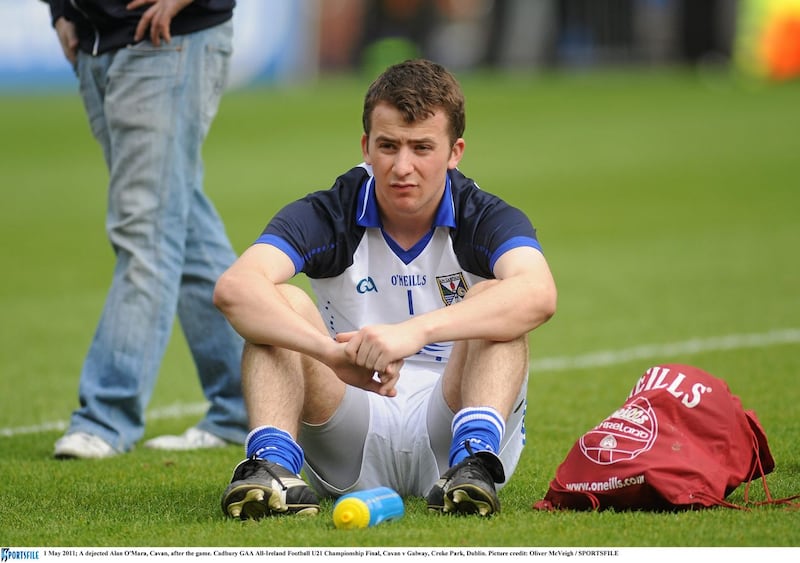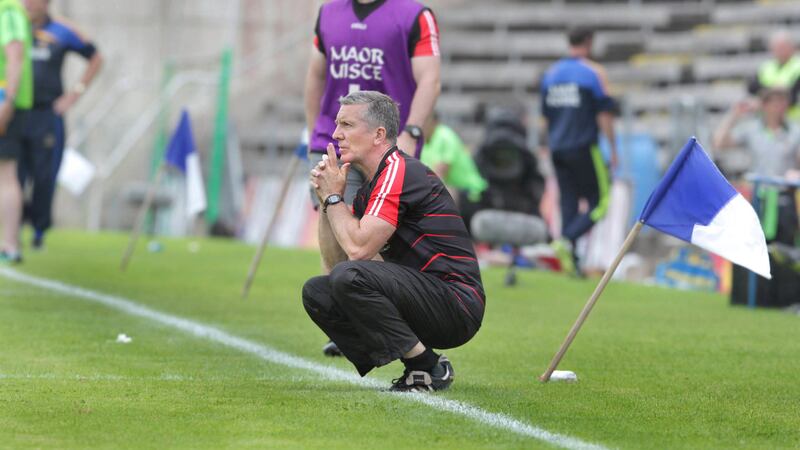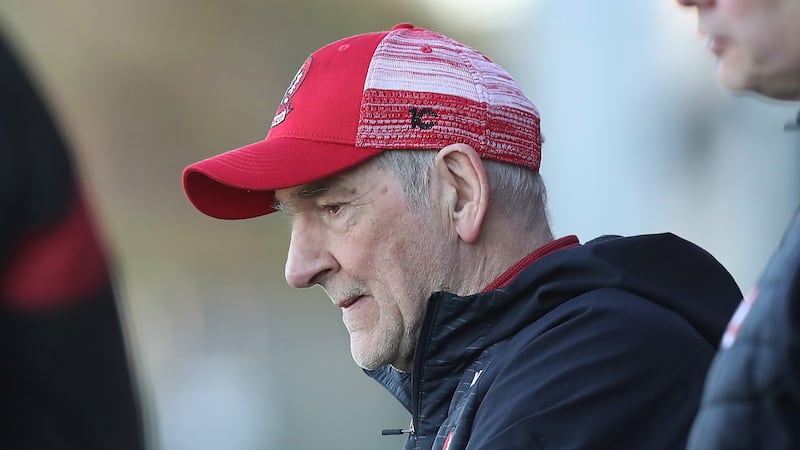THE Mayo players will hurt for a while now, as they do every winter.
Having failed again to win the All-Ireland in their 10th attempt since 1951, everyone was asking the same question: how do they lift themselves again? It will be tough. They may never again reach the level they have hit at spells in the last few years. The sands of time wait for no man and all that.
But when Mayo come back after a few weeks off and start to look at 2017, they will have realistic ambitions of winning back their Connacht title and putting forward another challenge for Sam Maguire. Their players - especially the younger ones - have that prospect to lift them.
What do footballers from Derry have to inspire them at this time of year? No Ulster title since 1998. One Ulster final in the last 15 years. Haven’t reached an All-Ireland quarter-final since 2007. No provincial U21 title since ’97 and no final in eight years.
The prospect of success in 2017 was remote, even before the week that’s just gone. Same as it was in 2015 and '14 and for pretty much every season since they threw away an Ulster title against Fermanagh in 2008.
In the past, that’s been okay with players. Only one team can win the All-Ireland. Only one in each province will be taking home some silverware in July. Everybody knew this and bought into it because, hell, football was a bit of craic. And pulling on that red-and-white geansaí was once looked upon as an indescribable honour.
Derry does not have a history that is laden with silverware, but there has always been a reputation for producing fine footballers. With that came the hope every winter that, no matter what had gone before, Derry had the players.
Even if Derry now had the players to compete at the top level, which they don’t, that is no longer enough. Tyrone beat them five times in the 2016 season, highlighting a huge chasm between the two in both the league game in Omagh and the Championship clash at Celtic Park. The levels of athleticism were night and day.
Derry reached the last-12 of the All-Ireland series this year and were two minutes from the last-eight. Most would see that as progression. The sobering reality is Derry are no different from about 26 other counties. Outside the top four or five, the race is wholly unpredictable and almost wholly pointless, really.
In the last 10 years, 22 different counties have found themselves playing in a round four Qualifier. Five of them have never made a quarter-final. Fourteen of them have never made a semi-final, with four of those that did making it just once.
Progress is not progress unless you repeat it consistently. And right now, does Derry look like a county that is in a place to repeatedly find itself in an All-Ireland quarter-final? No. It’s with that kind of statistic that you really start to ask: What is the point?
“Gaelic is the most ridiculously demanding sport for such little reward and ultimately enjoyment.” That was a text message I received last Saturday morning from a man that played inter-county football last year. The Irish News revealed last Saturday that nine key players have opted out of Damian Barton’s squad for 2017.
Danny Heavron, Sean Leo McGoldrick, Liam McGoldrick, Gareth McKinless, Conor McAtamney, Emmett Bradley, Ciaran McFaul, Eoghan Brown and Christopher Bradley have all declared themselves unavailable for selection.
When enquiries began last Thursday to ascertain what was happening, I expected to be met by a barrage of complaints about the management. Such a large number opting out suggests something is awry. But while there were issues for some, there was a different consistency in the message. Most were opting out for one very good, simple reason: Life.
Work. Wives. Babies. University. Girlfriends. Travel. All the branches that effect county footballers the same way they effect you and I. The definition of a hobby in the Oxford English Dictionary is: "An activity done regularly in one’s leisure time for pleasure."
Gaelic football has long since ceased to be seen as a hobby. Clearly, those Derry players had been asking themselves that question over the last two months: What is the point? They were being asked to increase their commitment again and go to extraordinary lengths in pursuit of ‘success’.
But what would be success for Derry next year? Given their Championship record of the last 20 years, reaching an All-Ireland quarter-final has to be regarded as the pinnacle. And sure, it would represent definable progress if they were to make it beyond the last-12 for the next year or two.
But is it really worth the level of commitment that’s required now? Of course it’s not. Same as it’s not worth it for the other 25 counties that won nothing this year. Anything less than total commitment to county football is a waste of time if you have ambitions to reach the levels of those challenging for Sam Maguire.
Training three times a week is simply wasting three nights of your week for nine months of the year. Playing inter-county football and hurling has become something that puts young men in a position of awful conflict.

Real life has to come before football. Former Cavan goalkeeper Alan O’Mara, who released a book, The Best Is Yet To Come, earlier this year which covers his own battle with depression, spoke in an interview on Monday of people needing “four or five” key pillars in life.
He left the Cavan panel in 2014 because his life had fallen out of sync and told himself he wouldn’t go back until he had “redressed that balance”: “I felt at that moment that football was an all-consuming, all-dominating thing for me.
“When football was going well, I was alright and, when it wasn’t, I wasn’t okay as an individual.”
How many inter-county footballers, from right around the country, have had thoughts such as those in recent years? You shudder to think. The balance is ridiculously unhealthy. You see that with the number of players retiring in their late 20s and very early 30s now. It’s not the pace of the game - it’s the demands.
For a handful of lads in Derry this week, the realisation of the modern game’s demands finally came to a head. It will only be when more and more follow them out the door that the issue is treated with the seriousness it demands.









